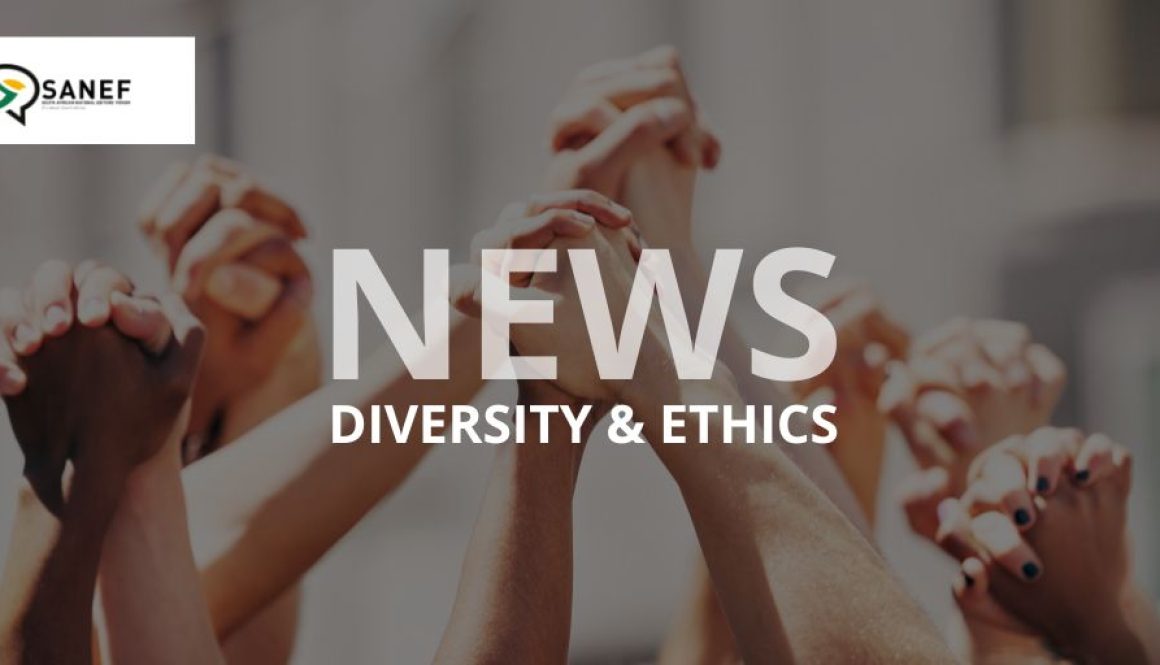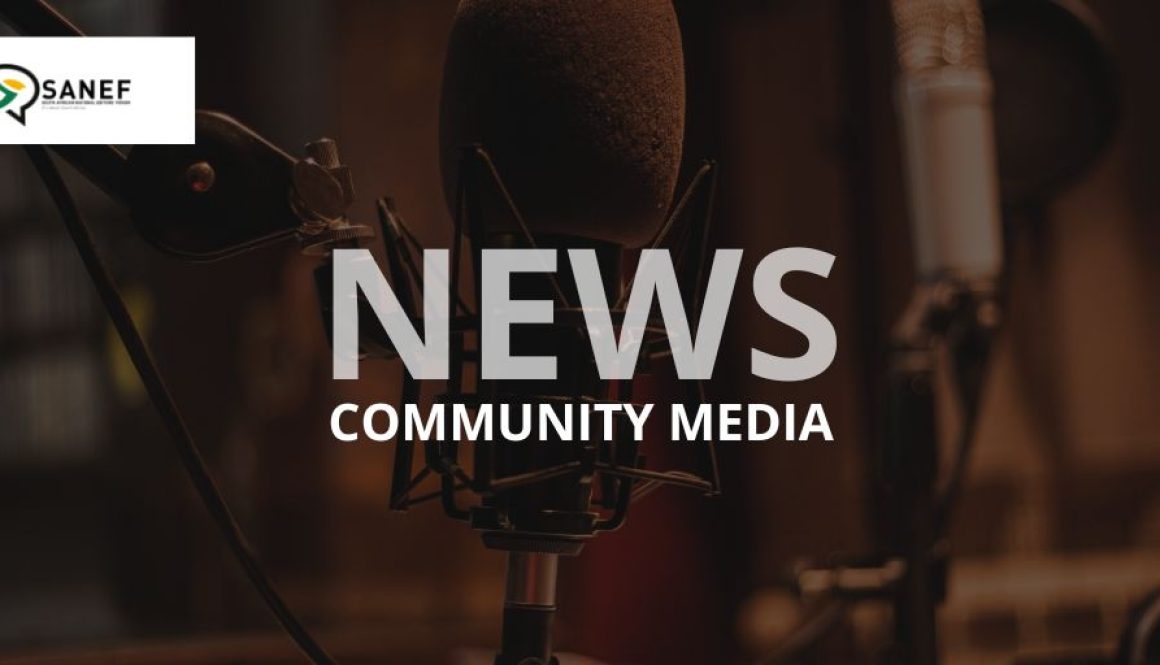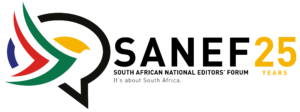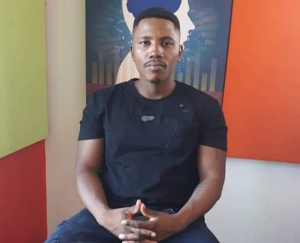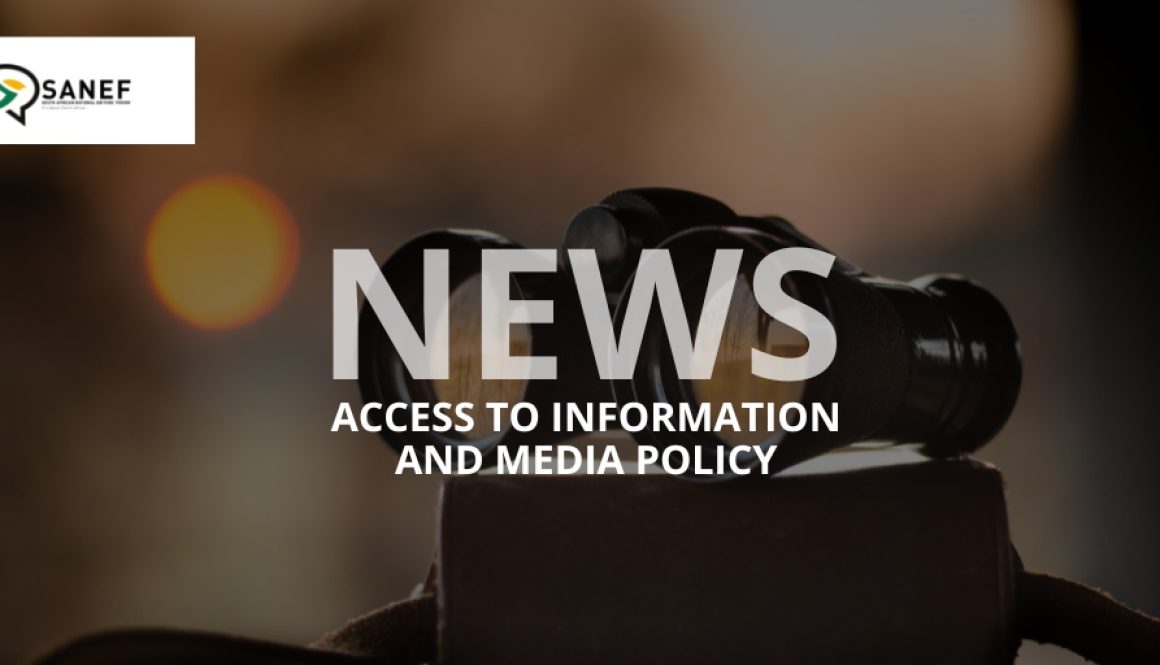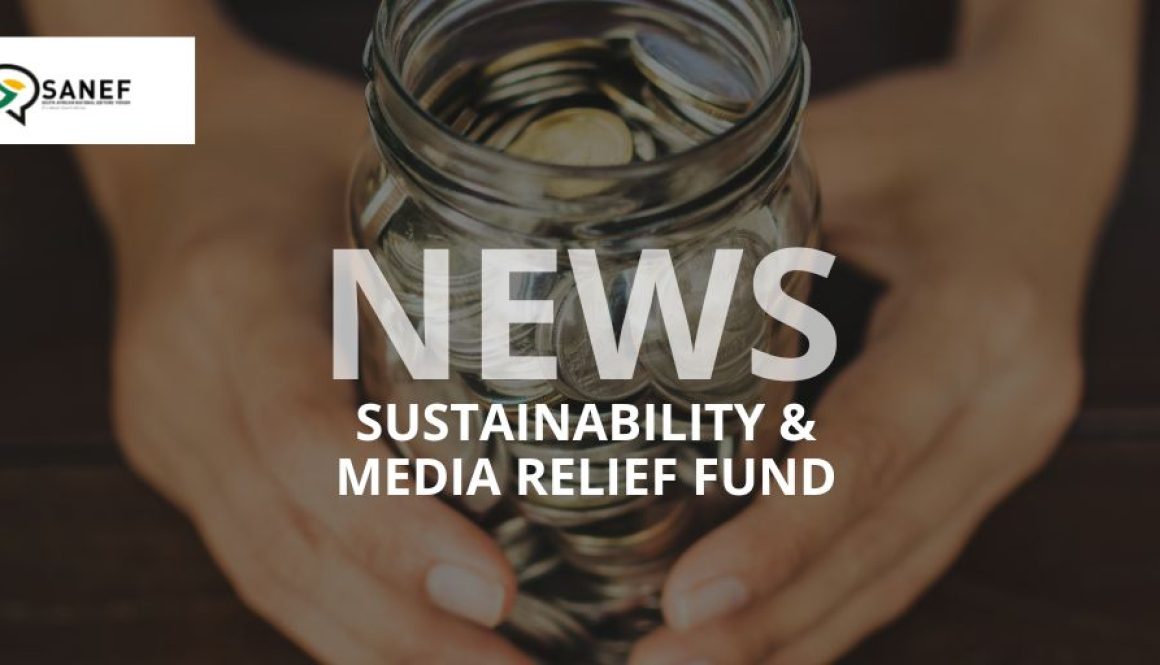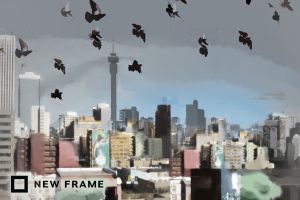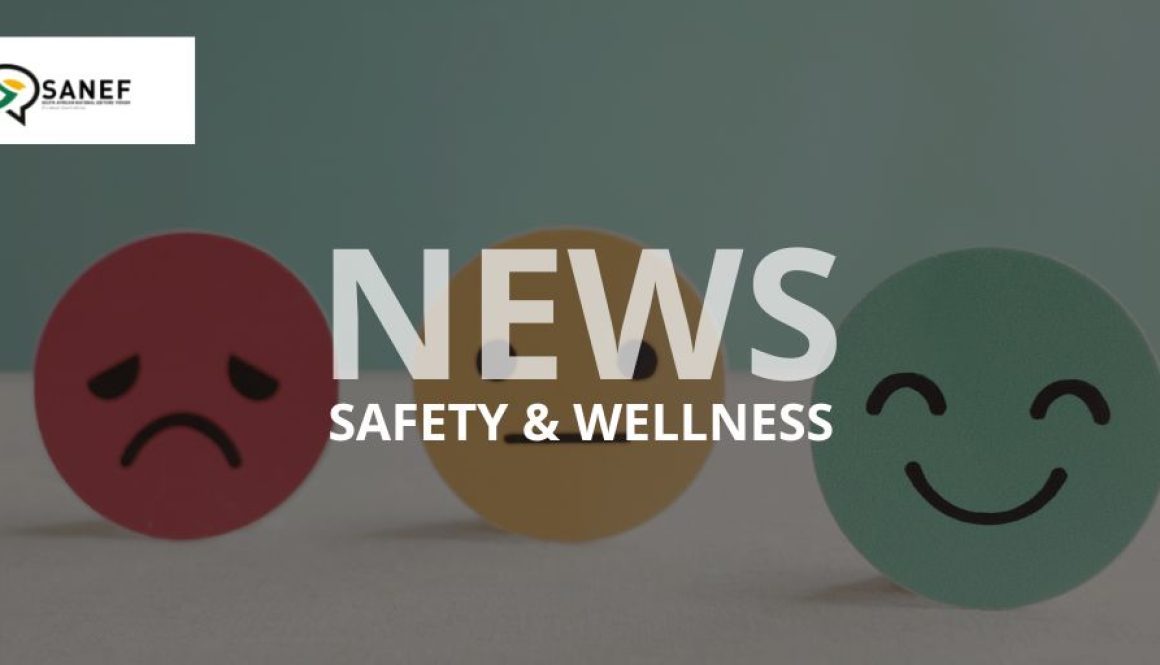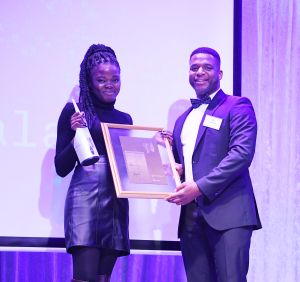Nat Nakasa Journalism Awards 2022 Winners
 Image: Nat Nakasa Judge Crystal Orderson (Left) poses with winners Cebelihle Mbuyisa and Magnificent Mndebele, and fellow judges Joe Thloloe and Peter Sullivan
Image: Nat Nakasa Judge Crystal Orderson (Left) poses with winners Cebelihle Mbuyisa and Magnificent Mndebele, and fellow judges Joe Thloloe and Peter Sullivan
The South African National Editors’ Forum (SANEF) last night awarded the Nat Nakasa Award for courageous journalism to two former New Frame journalists, Cebelihle Mbuyisa and Magnificent Mndebele, at an awards function held in Durban, KwaZulu-Natal. New Frame is now defunct.
The awards, sponsored by Sanlam, are now in their sixth iteration since the sponsorship started in 2017.
“The duo’s work at New Frame kept the story of the uprising in eSwatini alive for South African audiences,” said one of the judges, veteran journalist, Chrystal Orderson. She serves on the panel with two other legendary journalists, former The Star Editor-in-Chief, Peter Sullivan, and former Press Ombudsman, Joe Thloloe.
The awards were addressed by retired Judge, Dr Navi Pillay, who serves on the International Commission on Information and Democracy, which affirms the principles of media freedom, safety of journalists and media sustainability.
Pillay said all governments, including South Africa, must take action to promote a free and independent press which is instrumental to combat disinformation, build public trust and advance the promotion and protection of human rights. “I would say that such action must also protect media sources and whistle-blowers,” she said.
She said the world honours courageous journalists and that SANEF’s Nat Nakasa Awards fall into the spirit of celebration of brave and courageous journalists and expresses public gratitude for their work.
“This is what counts. The appreciation of the constituency to whom you are accountable. The silencing of journalists is a loss to society, honouring them is a gain,” Pillay said.
 The Nat Nakasa Award for Community Media went to Shiraaz Mohammed for his body of work, which included spending time with health care workers during the height of the COVID-19 pandemic. Judges noted that Mohammed was working on his own and producing his work without the backup of a big media corporation and putting his own life at risk.
The Nat Nakasa Award for Community Media went to Shiraaz Mohammed for his body of work, which included spending time with health care workers during the height of the COVID-19 pandemic. Judges noted that Mohammed was working on his own and producing his work without the backup of a big media corporation and putting his own life at risk.
As part of the awards, SANEF’s members get to nominate a fellow member for the Stephen Wrottesley Award, dedicated to honour members whose commitment in the journalism field goes beyond the call of duty. This year it was awarded to media freedom activist, former editor, and former SANEF’s management committee member, Angela Quintal. She is now in charge of the Africa programme at the Committee to Protect Journalists, based in New York.
Pearl Majola spoke on behalf of Sydney Mbhele, Group Executive: Brand saying Sanlam considered these awards to be more than a celebration but an endorsement of media freedom. They were about integrity and the exceptional bravery of journalists who will stand for the truth even at the risk of threats to their very being.
“We believe in and support robust journalism as one of the strongest pillars of our democracy and so we continue to commit our support for these awards,” said Majola.
The awards were sponsored by Sanlam

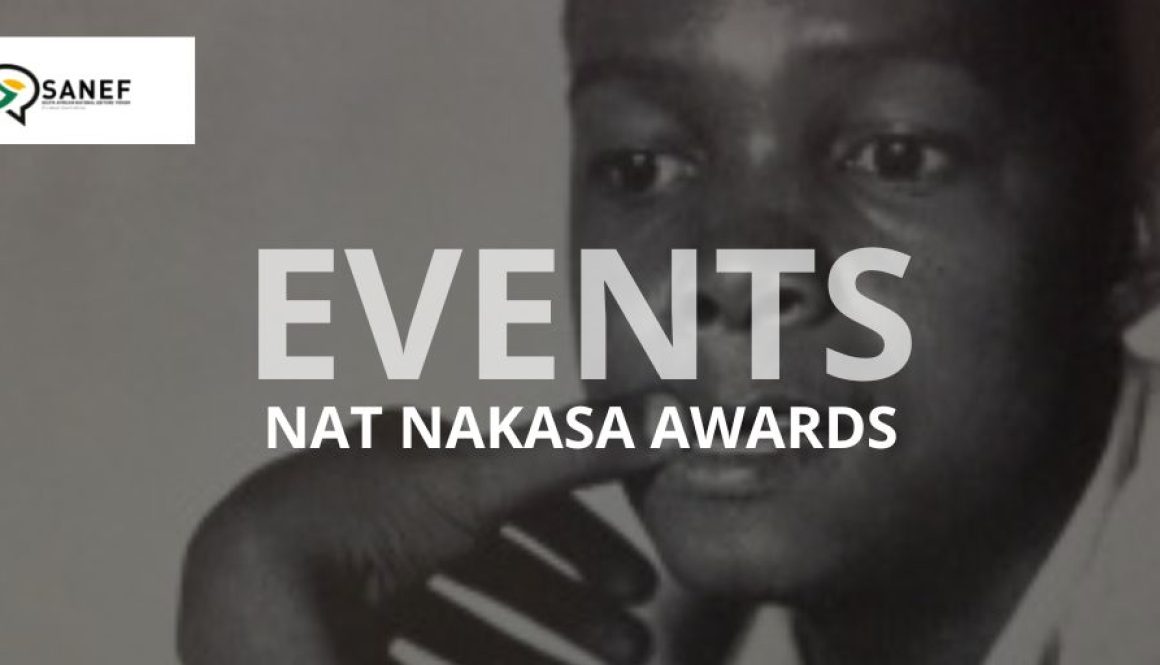
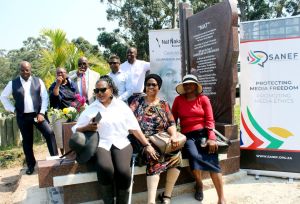
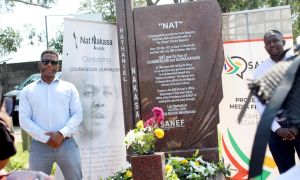
 In 2014 his remains were returned to SA for reburial at the Chesterville cemetery Hero Acres site, a fulfilment of his last wish to return home to the country where he was born.
In 2014 his remains were returned to SA for reburial at the Chesterville cemetery Hero Acres site, a fulfilment of his last wish to return home to the country where he was born.